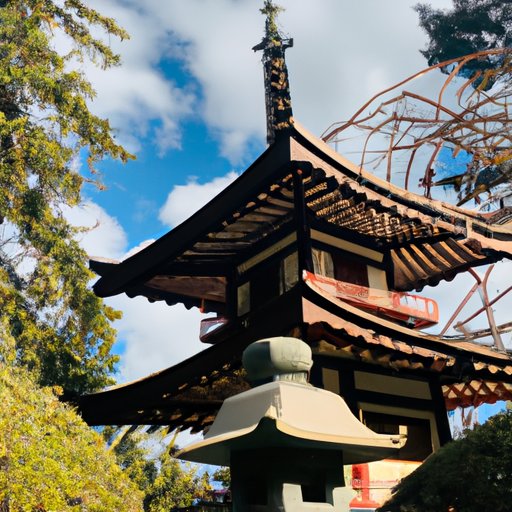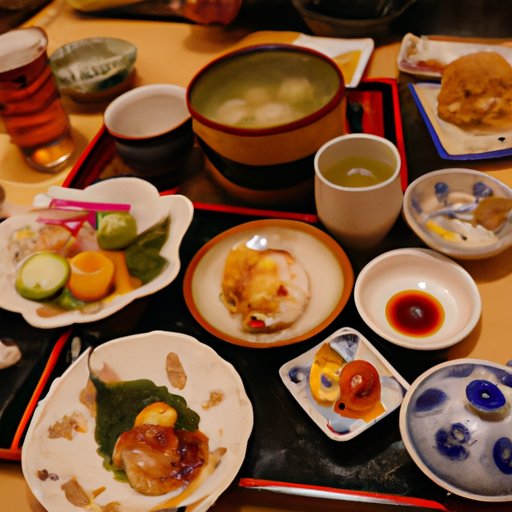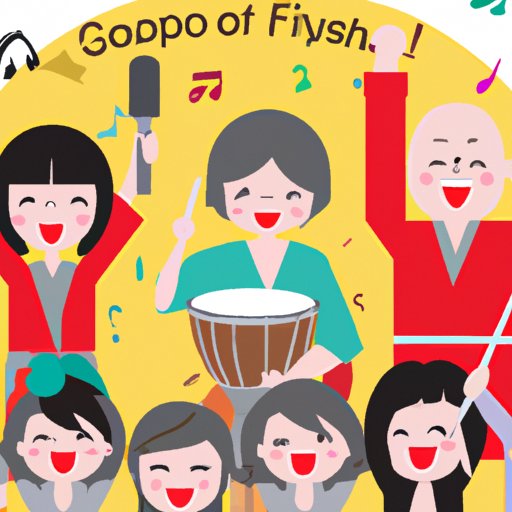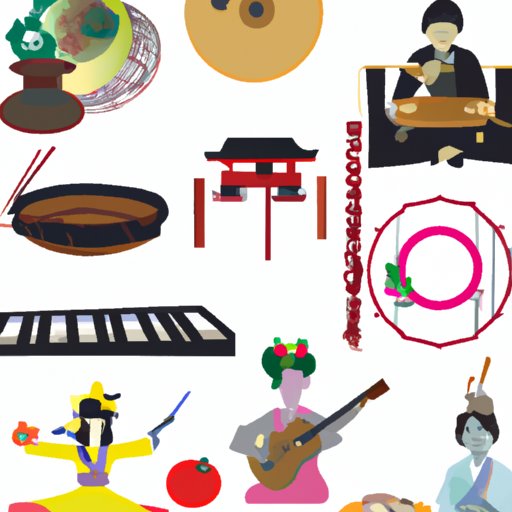Introduction
Japanese culture is the set of customs, traditions, beliefs, and values that are observed in Japan. It is a complex mix of ancient practices and modern values that have been shaped by the country’s long history. The culture of Japan has been shaped by the environment, religious beliefs, and relationships with other countries. This article will explore the various aspects of Japanese culture, including traditional arts and crafts, religion, food and eating habits, social etiquette, language and writing systems, and popular music and entertainment.

A Brief Overview of Japanese Culture
Japan is an archipelago located off the eastern coast of Asia, consisting of more than 6,800 islands. The four main islands, Honshu, Kyushu, Shikoku, and Hokkaido, make up 97 percent of the land area. The climate is temperate, with mild winters and hot, humid summers. Japan is home to more than 127 million people.
Japan has a long and rich history, stretching back to the Jomon period (c. 10,000 – 300 BCE). In the centuries that followed, Japan saw a number of political changes, from the rule of powerful clans to imperial rule. After World War II, Japan became a democracy, with a parliamentary government led by a prime minister.
Japan is one of the world’s most advanced economies and is a major exporter of goods and services. The country is known for its technological innovations, from cars and electronics to robotics.
Traditional Japanese Arts and Crafts
Traditional Japanese arts and crafts are an important part of the culture. Ukiyo-e is a style of woodblock printing that emerged in the 17th century and was used to create colorful prints of landscapes, people, and scenes from everyday life. Ikebana is the practice of flower arranging, which is believed to bring harmony and balance to the natural world. Origami is the art of paper folding, which is used to create figures and shapes out of folded paper.
The Influence of Religion on Japanese Culture
Religion has played an important role in shaping Japanese culture. Shintoism is an ancient religion that focuses on the worship of nature spirits, called kami. Buddhism was introduced to Japan in the 6th century and has since become one of the country’s major religions. Both Shintoism and Buddhism have influenced many aspects of Japanese culture, from art and architecture to literature and philosophy.

Food and Eating Habits in Japan
Japanese cuisine is known for its simplicity and use of fresh ingredients. Typical meals consist of rice, vegetables, fish, and miso soup. There are certain etiquette rules that must be followed when eating in Japan, such as using chopsticks and not making loud noises while eating. Special dishes, such as sushi and tempura, are served for special occasions.
Social Etiquette in Japan
Social etiquette is an important part of Japanese culture. Respect for elders is paramount, and it is customary to bow when greeting someone. Gift giving is an important part of social interactions, and there are certain rules that must be followed when giving and receiving gifts. For example, it is considered rude to open a gift immediately upon receiving it.
Japanese Language and Writing Systems
Japanese is the official language of Japan, and it is spoken by the majority of the population. It is written using three different writing systems: kanji (Chinese characters), hiragana, and katakana. Honorifics are used to show respect when addressing someone, and dialects vary by region.

Popular Japanese Music and Entertainment
Music and entertainment are an important part of Japanese culture. Traditional music such as gagaku, a court music dating back to the 8th century, is still performed today. Popular music includes both Western genres and traditional Japanese music. Anime and manga are two popular forms of entertainment that have become popular around the world.
Conclusion
In conclusion, Japanese culture is a complex mix of ancient traditions and modern values. It is shaped by the country’s geography, history, and relationship with other countries. Traditional arts and crafts, religion, food and eating habits, social etiquette, language and writing systems, and popular music and entertainment are all integral parts of Japanese culture. Understanding these aspects can help to appreciate the beauty and uniqueness of this culture.
(Note: Is this article not meeting your expectations? Do you have knowledge or insights to share? Unlock new opportunities and expand your reach by joining our authors team. Click Registration to join us and share your expertise with our readers.)
